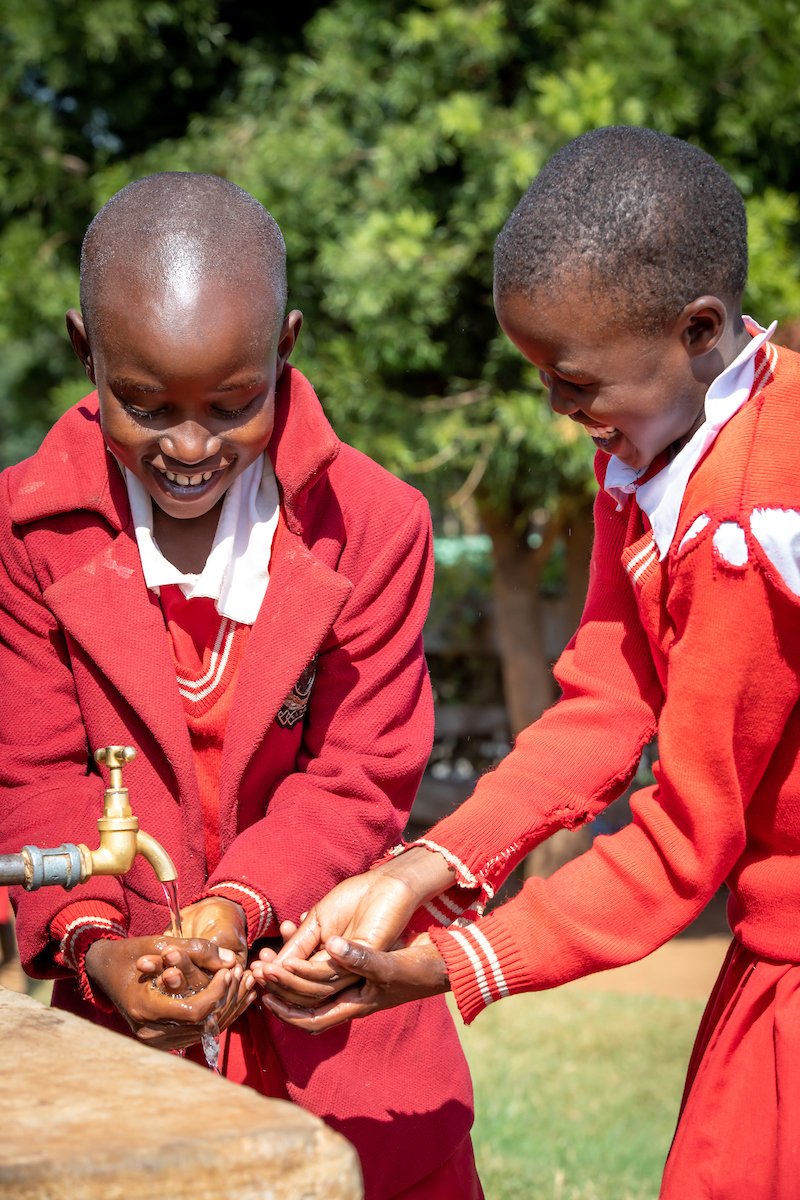clean water and sanitation
Written by Christine Hartter, Vice President of Development and Communications, The Kilgoris Project
The Kilgoris Project’s holistic approach to education brings significant WASH (Water, Sanitation and Hygiene) resources to our 2,000 students and their families in rural Kenya. Our focus on WASH aligns with the United Nations Sustainable Development Goal #6 to ensure availability and sustainable management of water and sanitation for all.
Access to clean water and sanitation facilities is changing lives in rural Kenya—we see it every day on TKP’s six campuses. As part of our commitment to creating high quality schools that meet international WASH standards, TKP drills a fresh water well on each campus, as part of the early years of campus development. Currently five campuses have wells with the sixth campus (Oloilalei) slated for drilling and installation in 2024.
This life-giving resource directly impacts the health, education, and overall well-being of our students, teachers, parents and community at large in many ways, including:
Preventing waterborne diseases: In rural areas of Kenya, water sources are often contaminated with bacteria, viruses, parasites, and pollutants. Drinking and using contaminated water can lead to diseases like diarrhea, cholera, dysentery, typhoid, and hepatitis. Children are particularly vulnerable to these illnesses, and without access to clean drinking water, they are at a high risk of getting sick. Clean water supply can significantly reduce the prevalence of waterborne diseases, improve the health of children and ultimately reduce child mortality rates.
Promoting proper hygiene: Clean water is essential for maintaining good hygiene practices, such as handwashing with soap. Families in Kilgoris often lack access to basic sanitation facilities, including handwashing stations and choos (pit latrines) in their homes. By providing clean water, children can regularly wash their hands, preventing the spread of diseases and reducing the risk of infections. Improved hygiene practices contribute to better overall health and reduced school absenteeism.
Supporting education: Access to clean water plays a significant role in promoting education among children—and is one reason, we believe children at TKP schools have better outcomes than children in the surrounding community. In many rural areas, children, especially girls, are responsible for fetching water, which can be a time-consuming and physically demanding task. Long walks to distant water sources prevent children from attending school regularly, and the burden of water collection often falls on girls, limiting their educational opportunities. By providing clean water on our campuses, children can spend more time learning and focus on their education, ultimately improving their future prospects.
By providing clean water on campuses, the risk of diseases decreases, and children can lead healthier lives, allowing them to thrive and reach their full potential. But we know these principles go far beyond TKP campuses. Training and educating TKP parents and community members is an important part of our mission. TKP’s Student Health Officers, our leadership team, and teachers share the importance of clean water and sanitation practices far beyond the classroom so that the entire community can benefit.
Clean water is a fundamental necessity—it has a far-reaching impact on health, education, nutrition, and overall quality of life. By ensuring access to clean water, we can improve the well-being of children, break the cycle of poverty, and contribute to the development of thriving communities.


